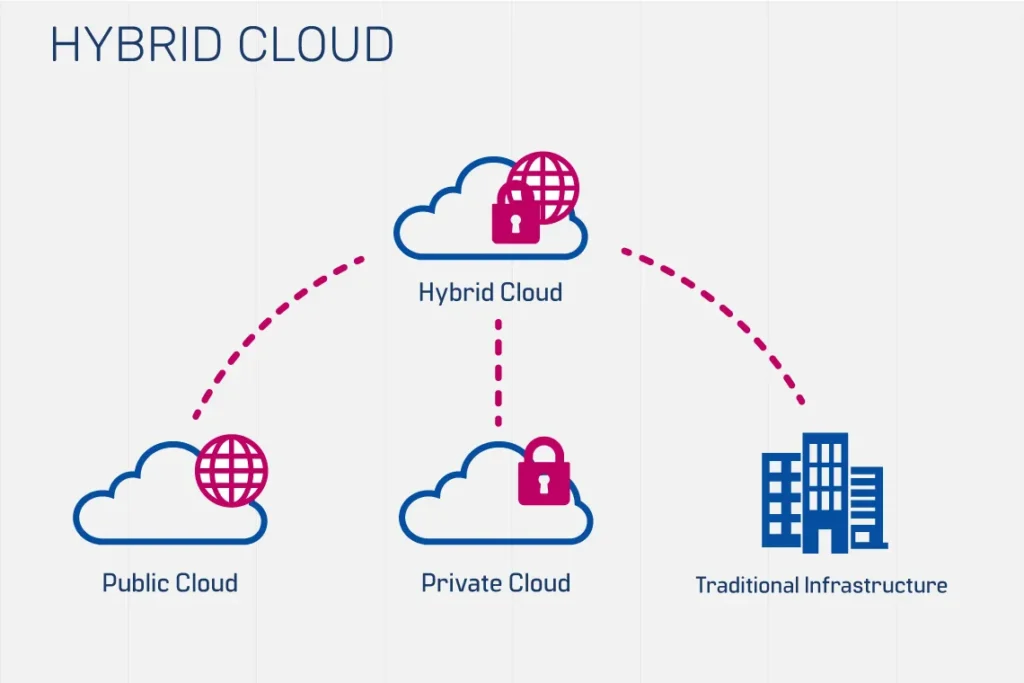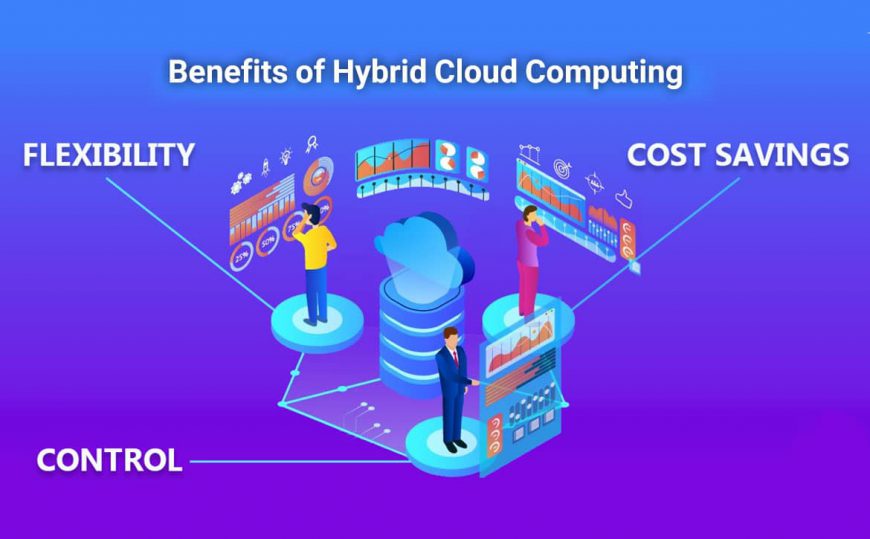In the ever-evolving landscape of computing, hybrid computing is emerging as a powerful approach that blends classical and quantum computing. This fusion leverages the strengths of both systems, allowing for more efficient problem-solving in areas like artificial intelligence, cryptography, and material science. By integrating quantum speed with classical reliability, hybrid computing is set to redefine the boundaries of computational capabilities.
Understanding Hybrid Computing
Hybrid computing is a model that combines traditional classical computers with quantum processors. Classical computers, based on binary logic (0s and 1s), have been the backbone of computing for decades. Quantum computers, on the other hand, leverage quantum bits (qubits), which can exist in multiple states simultaneously due to superposition and entanglement. This unique property enables quantum computers to solve specific complex problems exponentially faster than classical systems.

However, quantum computing is still in its infancy, with challenges related to error rates, qubit stability, and large-scale implementation. Hybrid computing bridges this gap by allowing classical and quantum systems to work together, maximizing their respective advantages while overcoming limitations.
Applications of Hybrid Computing
Hybrid computing is already making significant strides in multiple industries:
1. Artificial Intelligence and Machine Learning
Quantum algorithms can enhance AI models by improving optimization, pattern recognition, and deep learning capabilities. Google and IBM are actively exploring hybrid approaches to accelerate AI training and inference, making machine learning models faster and more accurate. As hybrid computing evolves, AI systems will become more efficient in autonomous decision-making, enabling advancements in robotics, automation, and natural language processing.
2. Cryptography and Cybersecurity
Traditional cryptographic methods rely on complex mathematical problems that could take classical computers years to solve. Quantum computers, however, could break these encryption methods in seconds. Hybrid computing helps develop post-quantum cryptographic solutions that remain secure in a quantum-powered future. Government agencies and cybersecurity firms are investing heavily in quantum-resistant encryption techniques to safeguard sensitive information and protect digital assets from potential cyber threats.
3. Material Science and Drug Discovery
Quantum computing is particularly well-suited for molecular simulations, enabling researchers to design new materials and drugs at an unprecedented speed. Hybrid computing allows classical models to handle preliminary simulations while quantum processors refine and accelerate calculations, leading to breakthroughs in chemistry and medicine. This can lead to the discovery of novel pharmaceuticals, more efficient energy storage solutions, and advanced materials with enhanced properties for aerospace, construction, and electronics.
4. Financial Modeling and Risk Analysis
Financial markets rely on vast amounts of data to predict trends and manage risks. Hybrid computing enhances portfolio optimization, fraud detection, and risk assessment by leveraging quantum-powered simulations alongside traditional financial models. Investment firms and banks are already exploring the potential of quantum-enhanced risk modeling to improve market predictions and economic forecasting.
5. Climate Modeling and Environmental Research
Climate change is one of the most pressing challenges of our time, requiring complex simulations to analyze long-term weather patterns, greenhouse gas emissions, and ecological shifts. Hybrid computing enables high-precision climate models that help scientists predict global climate changes more accurately and develop sustainable solutions. Quantum-assisted models can optimize renewable energy grids, improving efficiency in solar and wind power distribution.
6. Logistics and Supply Chain Optimization
Industries dependent on logistics, such as e-commerce, manufacturing, and transportation, face enormous challenges in optimizing supply chains. Hybrid computing can improve logistics planning by solving complex optimization problems faster than classical computing alone. Companies like DHL, FedEx, and Amazon are exploring quantum-assisted algorithms to enhance delivery routes, reduce transportation costs, and streamline inventory management.
Challenges and Future Prospects

Despite its potential, hybrid computing faces several hurdles:
- Hardware Limitations: Quantum computers require extremely low temperatures and high stability, making large-scale deployment difficult.
- Software Integration: Developing algorithms that seamlessly integrate classical and quantum computing remains a complex challenge.
- Cost and Accessibility: Quantum computing resources are expensive and not widely available for commercial use yet.
- Error Correction: Quantum computers are susceptible to errors due to decoherence and noise, requiring advanced error correction techniques.
- Scalability Issues: While quantum processors are improving, scaling them to handle real-world applications remains a challenge.
As research progresses, technology giants like IBM, Google, and Microsoft are investing heavily in hybrid computing solutions, aiming to make them more accessible. Governments worldwide are also funding quantum research to maintain technological leadership in the next wave of computing evolution.
The Role of Cloud-Based Quantum Computing
A significant development in hybrid computing is the rise of cloud-based quantum computing platforms. Companies such as IBM, AWS, and Microsoft Azure now offer cloud access to quantum computing resources, enabling researchers, developers, and businesses to experiment with hybrid quantum-classical applications without requiring in-house quantum hardware. This democratization of access accelerates innovation and allows organizations of all sizes to explore quantum-enhanced solutions.
Conclusion
The fusion of classical and quantum computing marks a transformative leap in technology, combining their strengths to drive innovation. This powerful approach is set to revolutionize industries such as AI, cybersecurity, material science, financial modeling, and climate research. By tackling complex problems more efficiently, it promises to reshape the technological landscape.
Although quantum computing is still in its early stages, this combined model offers a practical route for gradual integration. As researchers overcome current limitations, its future appears bright, paving the way for groundbreaking advancements and solving some of the world’s toughest challenges.
Are you excited about the future of hybrid computing? Share your thoughts in the comments below!
Stay Connected! For more insights on tech innovations, AI trends, and the future of the internet, explore our related blogs.






No responses yet